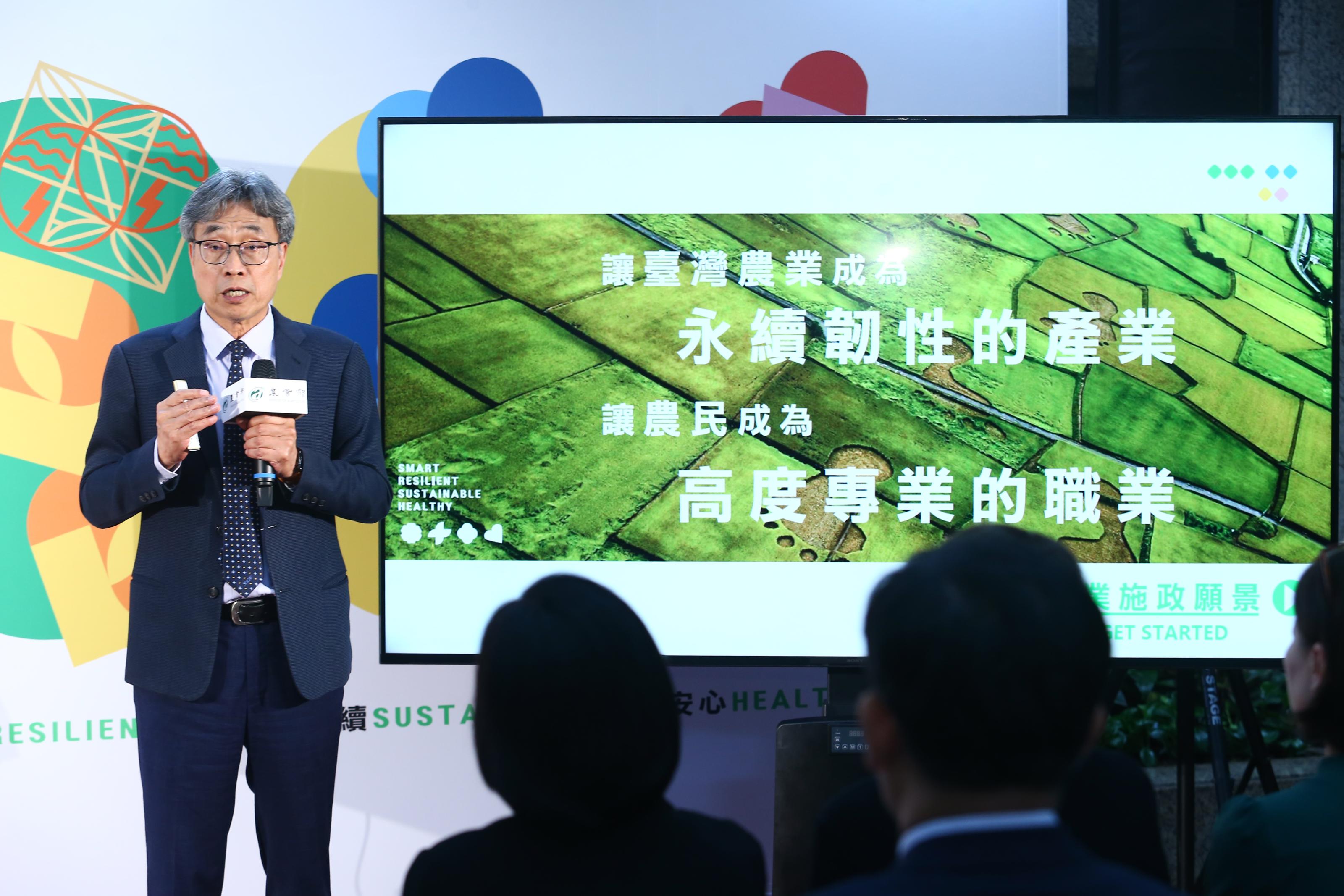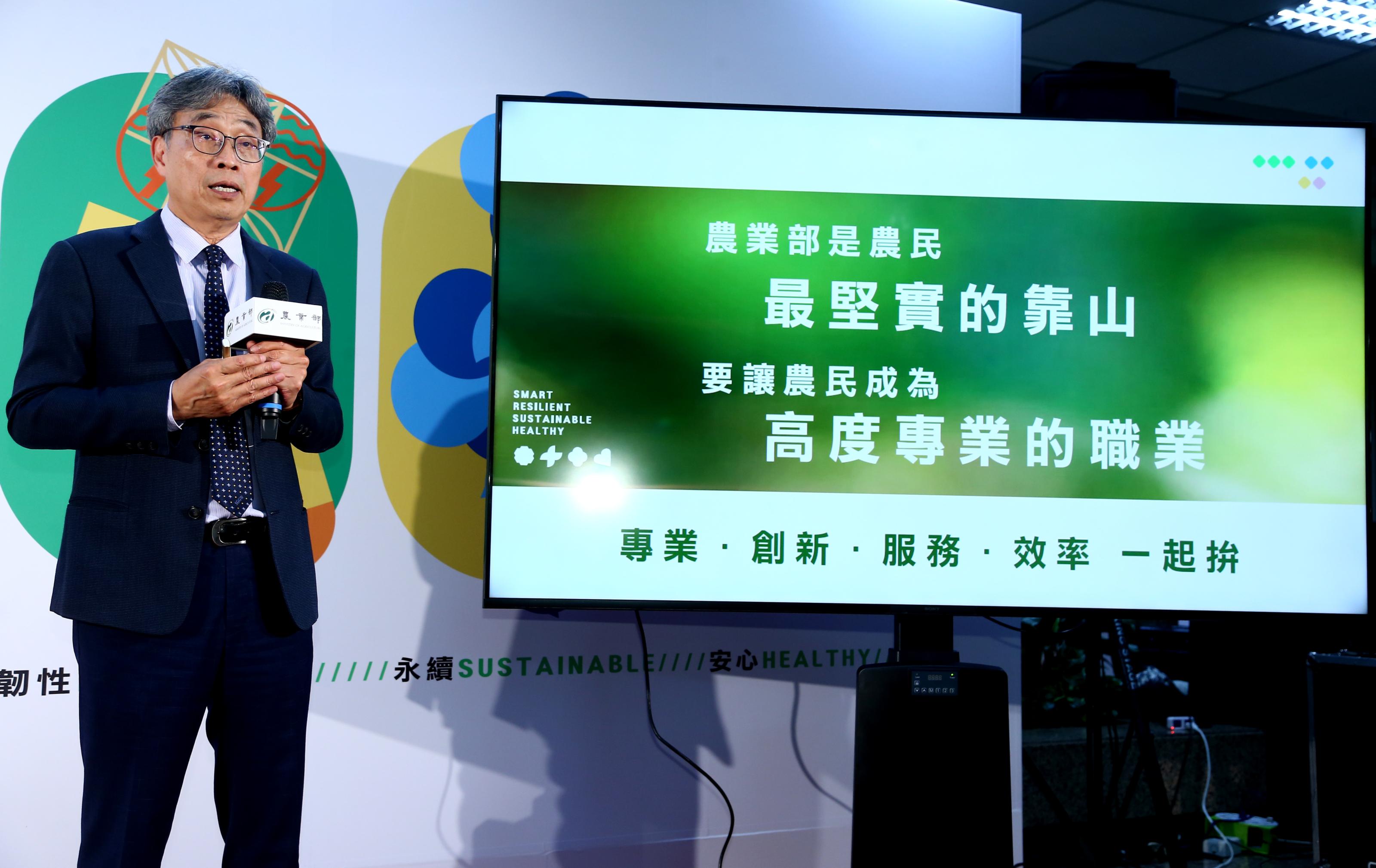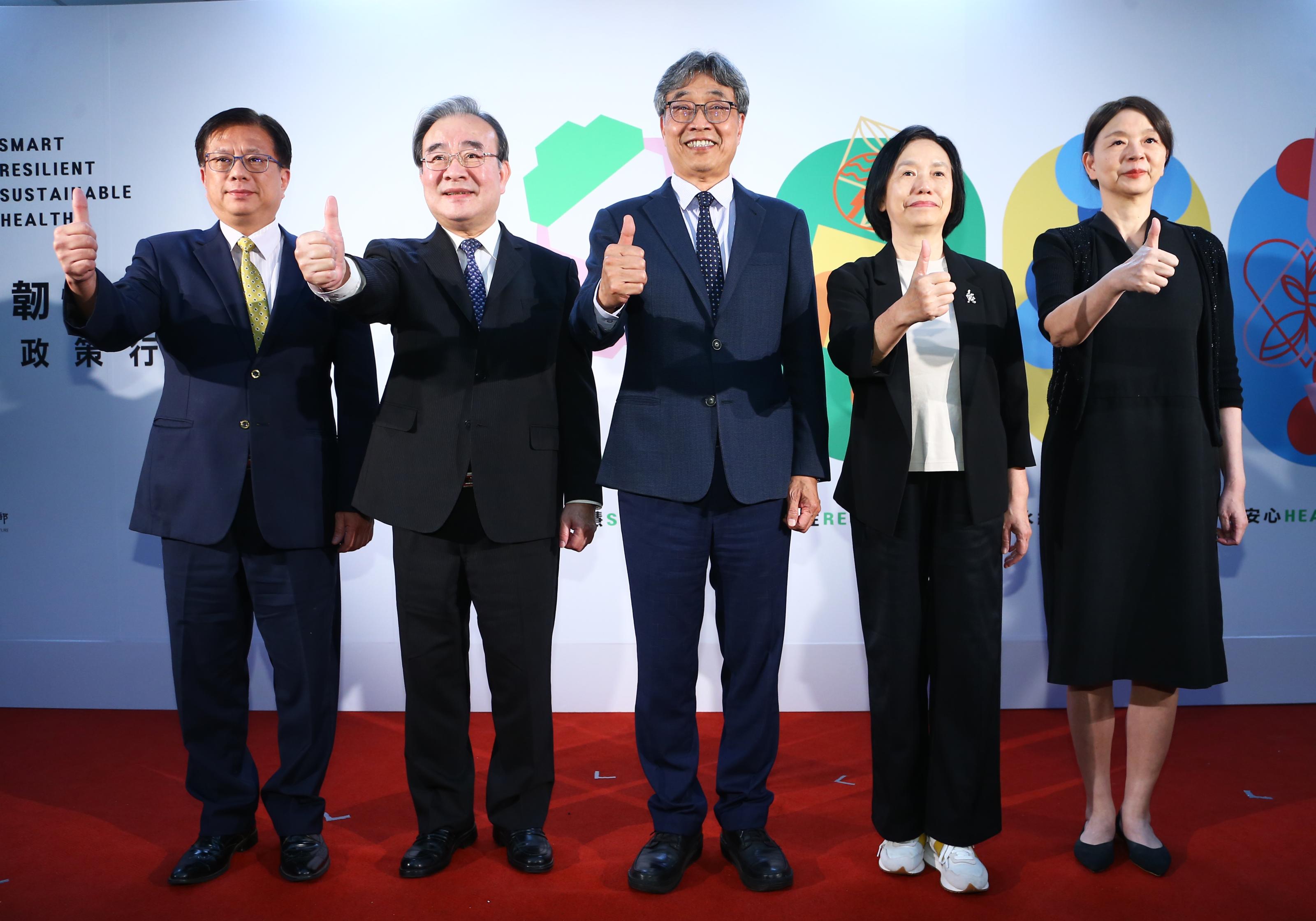News
Planning for the future of agricultural administration: Promoting “smart, resilient, sustainable, and healthy” agriculture—Action strategies for agricultural policies
Today (May 21) the Ministry of Agriculture (MOA) convened a press conference on the future outlook for policy implementation to explain the blueprint for future agricultural administration. Minister Junne-jih Chen stated that the future goals for agricultural policy are to “make agriculture in Taiwan into a sustainable and resilient sector and make farming in Taiwan into a profession with a high level of professionalism.” Building on the foundation of the reforms of the “New Agriculture” policy, the MOA will go a step further to establish axes of policy implementation informed by strategic thinking about agriculture. It will promote action strategies for agricultural policy based on the four main axes of “smart, resilient, sustainable, and healthy” agriculture along with 13 major strategies. The goals are to link together technology-based elements, including smart production and digital services, to comprehensively upgrade the resilience of agriculture, minimize operating risks in this sector, ensure stable production-and-marketing order, and enhance the competitiveness of agriculture.
Four major axes of action strategies for agricultural policy to enhance the competitiveness of agriculture
Minister Chen stated that in response to challenges in the internal and external environments for agriculture, the MOA urgently needs to promote action strategies for agricultural policies to create “smart, resilient, sustainable, and healthy” agriculture. There are four main axes to these action strategies. The first axis is “smart agriculture.” This involves accelerating the diffusion of smart technology to drive industrial development, with the government providing integrated digital services to build agricultural industrial chains and create an agricultural sector defined by precision, efficiency, and low operational risks.
The second axis is “resilient agriculture.” Under this aspect, the MOA will accelerate the building of agricultural basic environmental networks [agricultural infrastructure networks??], promote measures for adaptation to climate change, strengthen agricultural resiliency, and ensure food security.
The third axis is “sustainable agriculture.” MOA policies will emphasize the maintenance of the quality of, and circular practices for, agricultural production and environmental (ecological) resources, in order to guide Taiwan agriculture to sustainably develop with respect to resources, the environment, and net-zero carbon emissions.
The fourth axis is “healthy agriculture.” To enable farmers to practice their profession with peace of mind, the MOA will improve the welfare system for them as well as create a renaissance of happy rural communities and provide farmers with opportunities for diversified development. At the same time the MOA will increase the trust of consumers in the quality of organic and eco-friendly as well as traceable agricultural products, strengthen testing and traceability capabilities, ensure the safety of agricultural products, and establish value for the Taiwan brand, thereby encouraging the general public to support Taiwan agriculture.
Drafting an agricultural basic law, promoting digital cards for farmers, and creating a renaissance of happy rural communities
Minister Chen pointed out that under the four main axes of action strategies for agricultural policies, in order to promote the sustainable development of Taiwan agriculture, the MOA will draft an agricultural basic law. The goal is to lay out the main principles for the development of Taiwan agriculture, consolidate the foundations of agriculture, and guide Taiwan agriculture in the direction of sustainable development.
In order to upgrade the efficiency of farmers’ services, the MOA will also comprehensively integrate digital information and expand applications of smart technology in agriculture. To this end the MOA will come out with a farmers’ digital card; build a management system for farmers’ digital services; provide farmers with comprehensive, precise, and convenient services; and make it possible to access a variety of individualized services and information using mobile phones. In addition, the MOA aims to go a step further in building an agricultural Big Data database in order to make basic surveys of the agricultural situation more precise, and will promote the application of this database in production planning with the goal of maintaining stability and balance in agricultural production and marketing (supply and demand). Moreover, in order to enhance the speed and efficiency of surveys of agricultural natural disasters, the MOA will introduce innovative AI technology and a disaster survey App to upgrade disaster monitoring and early warning and assist in strengthening disaster mitigation measures and rapidly resuming cultivation following disasters.
To build rural communities whose residents enjoy a sense of well-being, the MOA will make “creating a renaissance of happy rural communities” one of the main points of policy implementation. The MOA will propose overall plans for rural community development, promote rural community spatial planning to create living environments conducive to collective prosperity and well-being, and provide farmers with diversified opportunities for development, while at the same time strengthening “green care” services for the rural elderly, in order to promote a renaissance of happy rural communities with intergenerational harmony.
Making agriculture in Taiwan into a sustainable and resilient sector and making farming in Taiwan into a profession with a high level of professionalism
Minister Chen said that the international situation and events including the Russia-Ukraine war that drove up the international price of important raw materials, plus the worsening of climate change, impacted the production of food and added volatility to global food prices. In the future agricultural policy will work towards providing farmers with a more reassuring agricultural operational environment, will emphasize to an even greater extent production-and-marketing planning for agricultural products as well as the stabilization of market order (balancing supply and demand), and will proactively promote a policy of food security. In addition, MOA will adopt a more proactive attitude and more effective measures as it continues to listen to farmers’ voices and industrial needs, use multiple communications channels to build consensus, and reassess on a rolling basis the full range of agricultural policy goals. Moreover, the MOA will proactively promote the transformation and upgrading of agriculture so that it becomes a highly competitive sector and “Agriculture for All” that is trusted and supported by all citizens—a Taiwan agriculture which has strong industrial capabilities and operates closely in line with international standards.




